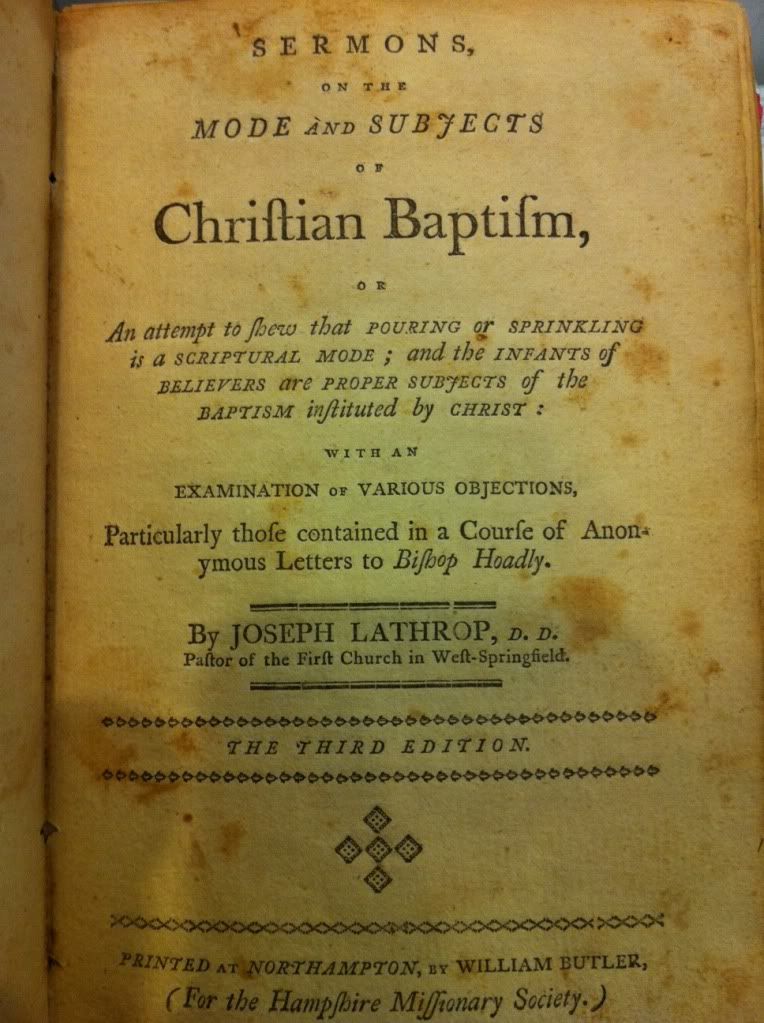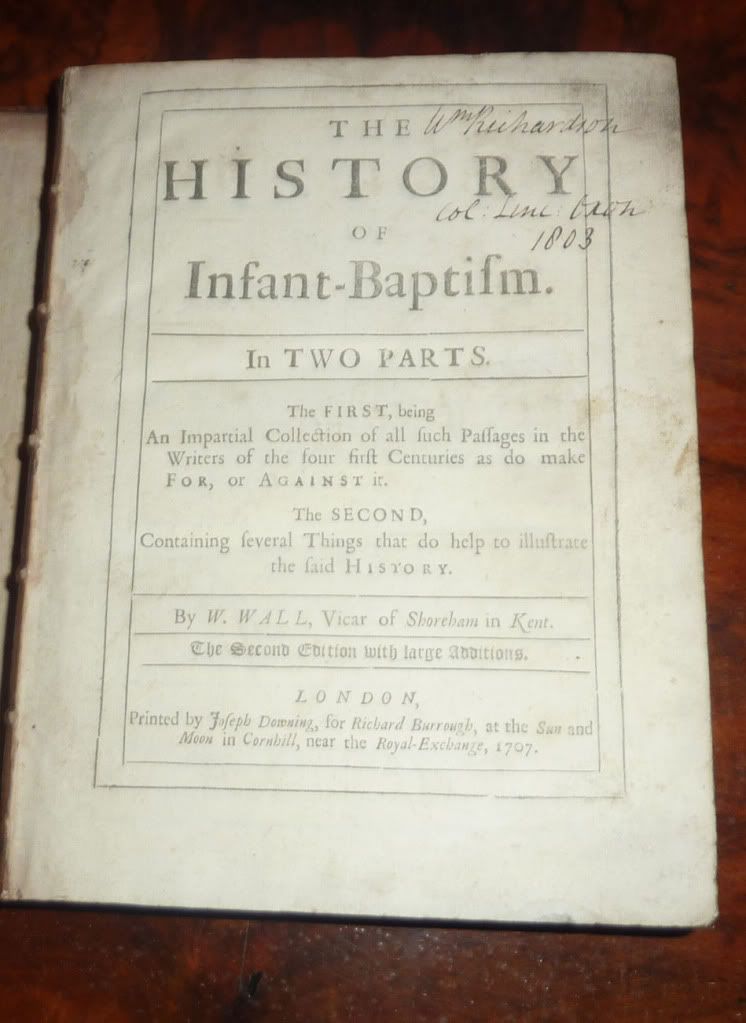Tyrese
Puritan Board Sophomore
I have a quick question. I keep hearing that the Church has always practiced infant baptism. Is this true? and if so, whats some good material to read up on this? As a convinced Baptist I think its really important for me to be alittle more familiar with infant baptism. Thanks.


